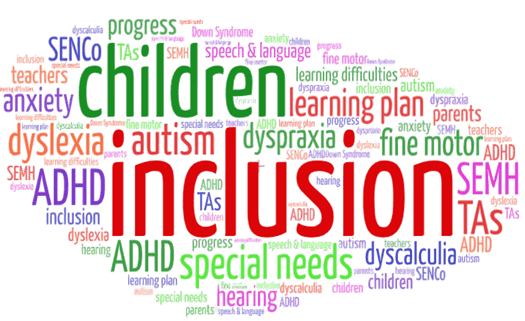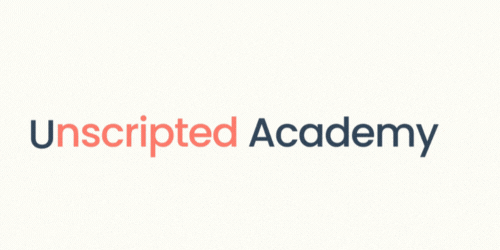Unleash your Creativity! Unlock your Potential!
10 Years of SEND: What's changed? And what still needs to?


10 Years of SEND...
When I was at school, the term SEND didn’t exist.
If it had... I would have been on that register.
I struggled in classrooms that didn’t fit how I learned, how I communicated, or how I expressed myself. I couldn’t sit still. I didn’t thrive under pressure. I had ideas but struggled to shape them in the way the system asked of me. Like so many others, I internalised that struggle as a personal failing.
I wasn’t focused enough. I wasn’t serious enough. I wasn’t normal enough.
But looking back with hindsight, knowing the success I've had, and reading of the thousands of other success stories from people who felt just as I did during their time in Education, I know now:
The problem wasn’t me. It was the system I was trying to fit into.
SEND: The 2014 Code of Practice
The Special Educational Needs and Disabilities (SEND) Code of Practice, introduced in 2014, represented a pivotal moment in the landscape of educational policy in England.
Its introduction held a powerful statement that not all learners thrive under the same conditions, and we, as a society, have a responsibility to do something about that.
The Code encouraged a more inclusive, flexible, and child-centred approach to education. It gave schools guidance for identifying and supporting special educational needs, and it highlighted the importance of student voice, parent partnership, and individualised learning.
It sought to streamline the assessment processes for special educational needs, thereby making it easier for parents and educators to identify needs and implement strategies swiftly. The introduction of Education, Health and Care (EHC) plans was another remarkable aspect of the Code, combining different forms of support into a single, coherent plan that follows the child through their educational journey.
As the last decade unfolded, the implementation of the SEND Code of Practice has led to notable successes. Schools and local authorities have increasingly embraced inclusive educational practices, which have improved outcomes for many students with disabilities. Nonetheless, the journey has not been without challenges; varying levels of resources, training, and funding have impacted the uniform application of the Code across regions.
Yet still, for too many young people, especially those with less visible needs, the classroom doesn't feel like a place they belong.
Why is it still not working?
Despite significant advancements in the Special Educational Needs and Disabilities (SEND) framework over the past decade, many challenges persist.
The SEND Code of Practice helped set out clear goals, the reality is that many students still feel excluded, not just physically, but emotionally and socially, and here's why:
Support is Inconsistent
Whilst some schools are doing incredible work with inclusion, others lack training, funding, or time. Therefore, the support a SEND child receives often depends on where they live and what school they attend, not what they need.
Hidden needs are still missed
Many students, especially those with ADHD, autism, speech and language difficulties, or trauma backgrounds, become experts at masking. They don’t cause 'problems', they disappear. These quiet students are often the ones falling through the cracks and not getting the attention they need.
Intervention comes too late
Often, support only kicks in when a child reaches a critical point: exclusion, school refusal, or severe mental health concerns. A system focused on early recognition and relational support, not just reactive measures, would help deal with these concerns.
The curriculum is too rigid
Our current education system still prizes academic performance over personal growth. Students who don’t excel through memorisation, exams, or linear instruction are often seen as “behind,” when in fact they may simply learn differently, and we will often find these students excelling when offered alternative forms of learning.
Behaviour is misunderstood
Emotional dysregulation, shutdown, or acting out are often signs of overwhelm, not defiance. But without trauma-informed, attachment-aware training, many students are punished for their coping mechanisms. This only further alienates the student and forces their hand in defiance, not against the teachers, but against a system that makes them feel inadequate, and in turn, their education.
What's the Alternative?
We don’t need to overhaul the system overnight, but we do need to start teaching in ways that recognise and respond to how people learn best.
That’s where experiential, drama-based learning comes in.
At Unscripted Academy, our workshops aren’t just “fun add-ons.” They’re structured, skill-building sessions rooted in evidence-based practices. We use roleplay, storytelling, movement, and improvisation to teach what the curriculum often neglects:
💬 Communication
🎭 Confidence
🤝 Emotional resilience
🧠 Problem solving
🧍♀️ Self-awareness
These sessions give students the chance to:
Try out new behaviours in a safe, low-stakes space
Fail, reflect, and try again
Discover their authentic voice and way of learning
Build connection and trust with others
Engage in learning without fear of being “wrong”
For neurodivergent learners, those with SEND, or students at risk of exclusion, this kind of approach isn’t just effective, it can be transformational.
A further essential component in addressing these challenges is the need for ongoing teacher training and professional development. Many educators often feel ill-equipped to meet the specific needs of SEND students. It is crucial to provide comprehensive training that emphasizes differentiation strategies, inclusive educational practices, and effective communication methods.
And we're not the only ones calling for change!
I've had the pleasure of speaking with Anthony Benedict, CEO of Ambition Community Trust. Anthony's work on Relational inclusion proactively prioritises building strong, positive relationships to foster a sense of belonging and support for all students, and through Ambition Community Trust, they offer staff training, early identification, and therapeutic support where appropriate.
The Jamie Oliver Group has done some brilliant work around the urgent need to test and identify SEND needs earlier, so support can start before children become labelled as “problematic.” Others in the education and wellbeing spaces are pushing for whole-child approaches that prioritise social and emotional development, not just academic performance.
Together, we're building a movement! A future in which schools work with student differences, not against them!
Moving Forward: From Policy to Practice
How do we make the promise of SEND truly felt in the classroom?
It starts with a shift in mindset. We need to transition from seeing human skills and emotional development as a “nice to have”, to recognising them as essential to student success.
Here’s what needs to happen:
Teacher CPD must include relational, creative, and trauma-informed approaches, not just academic strategies.
Schools must create time and space for communication, identity, and personal growth, not just exam prep.
Leadership needs to support flexibility. Trusting staff to teach students in the best way for them is the first step in inclusive practice.
Governments must invest in SEND beyond policy, providing time, training, and resources to support implementation.
And most importantly:
We must listen to students! The ones who are disengaged, overwhelmed, or non-verbal often have the clearest insight into what’s missing.
When learning becomes human again, we stop labelling students as “difficult,” “disruptive,” or “low ability”, and start asking better questions.
What’s behind the behaviour?
What support is missing?
What does this child need to thrive?
We mustn't forget how far we've come, but there's no doubt we still have a long way to go!
© 2024 Unscripted Academy. All rights reserved.


